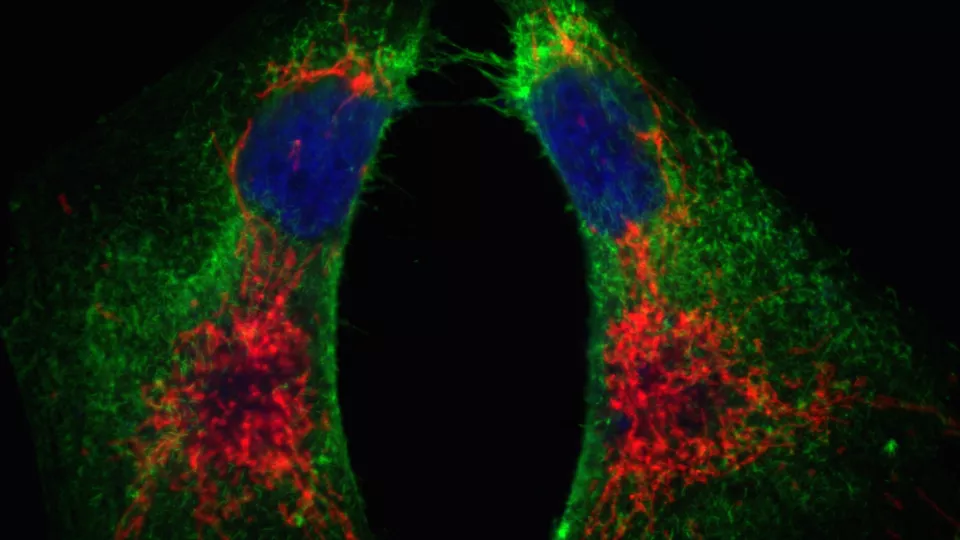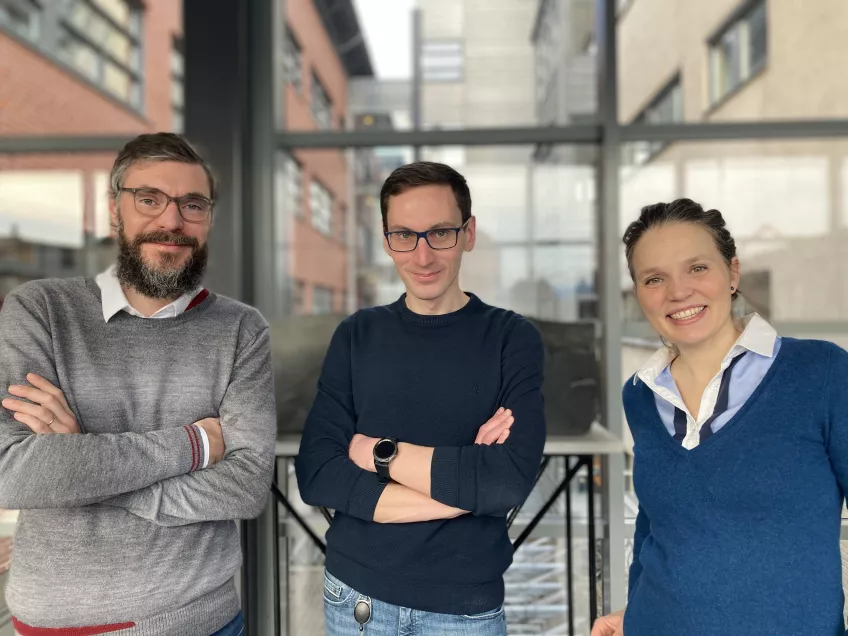A collaborative study between Lund Stem Cell Center (LSCC) and Lund University Cancer Center (LUCC) has uncovered a novel mechanism by which cancer cells hijack ribonucleic acid (RNA) processing to alter genetic programs that impact tumor metabolism and plasticity.
RNA splicing is a major nexus of gene expression, shaping cellular identity during development, which is frequently altered in human cancers. This process is executed by a complex macromolecular machinery known as the spliceosome, which enables the production of multiple and functionally distinct proteins from single genes.
“Splicing is commonly altered in human cancer, although how this occurs is poorly defined,” explains Maciej Ciesla, a postdoctoral fellow in the RNA and Stem Cell Biology group at the LSCC and first author of study. “We wanted to understand the basic mechanisms by which cancer cells hijack the spliceosome to promote tumor development,” adds the research leader and study coordinator Cristian Bellodi.
The team began by investigating how the levels of a protein known as SF3A3, a core spliceosome component, are controlled in cells harboring oncogenic lesions common in human cancers. They found that elevated expression of SF3A3 led to strictly defined splicing changes that critically affected the expression of key genes involved in the regulation of mitochondria, the cellular energy powerhouse.
Importantly, they found that SF3A3 synthesis is tightly controlled in aggressive breast cells, whereby the oncogenic MYC is hyperactivated. “Since deregulated energy production is a hallmark of human cancers, we reasoned that targeting SF3A3 would hamper their metabolism and the tumorigenic activity of breast cancer cells,” explain the researchers.
Unexpectedly, they observed that blocking sustained SF3A3 protein production in breast cancer cells not only affected cellular metabolism, but also enabled stem cell-like programs that were specific to rare populations of cancer initiating cells. Building on these observations and evidence that cancer initiating cells are involved in tumor formation and relapse, the authors explored the clinical implications of SF3A3-mediated splicing in breast cancer patients.
Together with Dr. Ana Bosch from Skåne University Hospital and researchers at the LUCC the authors analysed the Sweden Cancerome Analysis Network – Breast (SCAN-B), the largest population-based molecular and clinical database from breast cancer patients in the world. Strikingly, they found that SF3A3 protein levels could identify distinct types of breast cancers, characterized by a high-risk of relapse and poor prognosis.
“This provides unprecedented information that may explain specific clinical features in difficult-to-treat breast cancers,” remarks Ana Bosch, the co-corresponding author of the study.
“Our work provides important insights into the molecular mechanisms that adapt genetic information to sustain tumor development, which may serve as a springboard for future studies and the development of novel cancer treatments,” concludes Cristian Bellodi.
Publication in the Molecular Cell Journal: Oncogenic translation directs spliceosome dynamics revealing an integral role for SF3A3 in breast cancer
This project is funded by Cancerfonden, The Swedish Foundations’ Starting Grant (SFSG), StemTherapy & Vetenskapsrådet. Cristian Bellodi is Ragnar Söderberg Fellow inMedicine and a Cancerfonden Young Investigator. Maciej Cieśla is supported by a Cancerfonden Postdoctoral Fellowship. Ana Bosch is supported by the Governmental Funding for Young Clinical Researchers within the National Health Service in Sweden (ALF) and the Fru Berta Kamprad Foundation.



